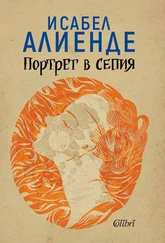None of the combatants could understand why they had been sent to die on the banks of the River Ebro. It made no sense to push into territory Franco controlled, and the cost in lives of maintaining their position was absurd. But to voice any objection out loud was an act of cowardice or treason, paid for dearly. Guillem fought under a lionhearted American officer who had been a university student in California before joining the Lincoln Brigade. Despite having no military training, the American showed he was made for warfare, a born soldier who knew how to give orders: his men worshipped him.
Guillem had been one of the first volunteers for the militias in Barcelona, at a time when the socialist ideal of equality reigned. The revolution had extended this to every sector of society, including the army, where no one was considered superior to anyone else, or entitled to have more. The officers lived alongside the rest of the troops without privileges; they ate the same food and wore the same uniforms. There was no hierarchy, no protocol, no standing at attention, no special tents, weapons, or vehicles for officers, no shiny boots, fawning adjutants, or cooks, as in conventional armies and definitely in Franco’s. All this changed over the first year of war, when the revolutionary enthusiasm died down to a great extent. A disgusted Guillem saw how in Barcelona there was a subtle return to bourgeois ways of living: social classes, the arrogance of some and the servility of others, bribes, prostitution, the privileges of the rich, who had plenty of everything—food, tobacco, fashionable attire—while the rest of the population suffered shortages and rationing. He also saw changes in the military. Made up of conscripts, the Popular Army absorbed the voluntary militias and reimposed traditional hierarchies and discipline.
Despite this, the American officer still believed in the triumph of socialism. To him, equality was not only possible, but inevitable, and he practiced it like a religion. The men under his command called him comrade, but never questioned his orders. He had learned enough Spanish to be able to explain the Ebro campaign to his men. The aim was to protect Valencia and to restore contact with Catalonia, separated from the rest of Republican territory by a broad swath the Nationalists had conquered. Guillem respected the officer and would have followed him anywhere, with or without explanations.
In mid-September, the American was machine-gunned from behind. He fell alongside Guillem without a single moan, continuing to encourage his men from the ground until he lost consciousness. Guillem and another soldier lifted him up and laid him behind a pile of rubble until nightfall, when the stretcher-bearers could come and take him to a first aid post. A few days later, Guillem heard that if the officer didn’t die, he would be an invalid for the rest of his life. He wished him a speedy death with all his heart.
The American died a week before the Republican government announced the withdrawal of foreign fighters from Spain, in the hope that Franco, who relied on German and Italian troops, would follow suit. That didn’t happen. Buried in an unmarked grave, the Lincoln Brigade officer did not live to march with his comrades through the streets of Barcelona, cheered by a grateful population in a massive ceremony that every one of them would remember forever. The most memorable farewell speech was given by La Pasionaria, whose incandescent enthusiasm had kept Republican morale high throughout the war. She called them freedom crusaders, heroes and idealists who were both brave and disciplined, and who had left their homes and countries to give everything, only asking in return the honor of dying for Spain. Nine thousand of those crusaders stayed forever, buried on Spanish soil. La Pasionaria ended by telling the departing foreigners that after the victory they would return to Spain, where they would find a homeland and friends.
Franco’s propaganda called on the Republican troops to surrender through loudspeakers and pamphlets dropped from planes, offering bread, justice, and freedom, but all the combatants knew that deserting meant they would end up in a prison or a mass grave that they themselves would be forced to dig. They had heard that in the towns and villages conquered by Franco, the widows and families of those executed were obliged to pay for the bullets used by the firing squads. And the number of the executed was in the tens of thousands. So much blood ran that the following year the peasants swore that when they pulled up their onions they were red, and that they found human teeth in their potatoes. Even so, the temptation to go over to the enemy for a loaf of bread led to many fighters deserting—usually the youngest recruits. On one occasion, Guillem had to grapple with a youngster from Valencia who was so terrified he lost his nerve; Guillem pushed his pistol against the boy’s temple and swore he would kill him if he left his post. It took two hours to calm the boy down, but Guillem succeeded in doing so without anybody else noticing. Thirty hours later, the youngster was dead.
And in the midst of that hell, where they couldn’t rely on even the most essential supplies, every so often an ambulance appeared with a sack of mail. The driver was Aitor Ibarra, who had set himself this task to raise the combatants’ spirits. Personal correspondence was one of the lowest priorities on the Ebro front, and in fact most of the men did not receive letters: those in the International Brigades because they were so far from their loved ones, and many of the Spaniards, especially those from the south, because they came from families where no one could read or write. But Guillem Dalmau did have someone to write to him. Aitor would joke he was risking his life to bring letters to a single recipient. Sometimes he handed Guillem a thick packet of several letters tied up with a string. There were always one or two from Guillem’s mother and brother, but most came from Roser. She would write one or two paragraphs every day until she had filled a couple of pages, then put them in an envelope and take it to the military mail office, singing to herself the most popular militia song: If you want to write / you know where I’ll be / Third Mixed Brigade / in the first line of fire. She had no idea that Ibarra greeted Guillem with the same or a similar song when he handed him the letters. The Basque sang even when he was asleep to ward off fear and beguile his good luck fairy.
—
AFTER CONQUERING MOST OF the country, Franco’s troops continued their inexorable advance; it was obvious that Catalonia would fall as well. Panic gripped Barcelona; many made preparations to leave, lots more had already done so. In mid-January 1939, Aitor Ibarra arrived at Manresa hospital in a battered truck with nineteen gravely wounded men. There had been twenty-one when they started out, but two had died on the journey, and their bodies had been left by the wayside. Some doctors had already fled the city, while those who remained were trying to avoid panic among their patients. The members of the Republican government had also chosen to go into exile, hoping to continue to govern from Paris. This finally undermined the spirit of the civilian population. By now, the Nationalists were less than twenty-five kilometers from Barcelona.
Ibarra had gone fifty hours without sleeping. After delivering his pitiful cargo, he collapsed, exhausted, into Victor Dalmau’s arms when the doctor came out to receive the wounded. Victor installed Aitor in what he called his regal chamber—a camp bed, kerosene lamp, and chamber pot constituted his entire lodging ever since he had begun living in the hospital in order to save time. Some hours later, when there was a lull in the frenetic activity in the operating theater, Victor took his friend a bowl of lentil soup, the dried sausage his mother had sent him that week, and a pot of chicory coffee. He had difficulty waking up Aitor, but still dizzy with fatigue, the Basque ate voraciously and told him in detail about the battle of the Ebro, which Victor already knew about in outline from the accounts of all the injured he had treated in the previous months. The Republican Army had been decimated and, according to Ibarra, it only remained for them to prepare for the final defeat. “In the hundred and fifteen days of combat, more than ten thousand of our men died. I don’t know how many thousands more were taken prisoner, or how many civilian victims there were in the bombed towns and villages, and that’s not counting the losses among the enemy,” added the Basque. As Professor Marcel Lluis Dalmau had predicted before he died, the war was lost. There would be no negotiated peace, as the Republican high command was claiming; Franco would accept nothing less than unconditional surrender. “Don’t believe the Francoist propaganda: there’ll be no mercy or justice. There’ll be a bloodbath, just like there has been in the rest of the country. We’re done for.”
Читать дальше











